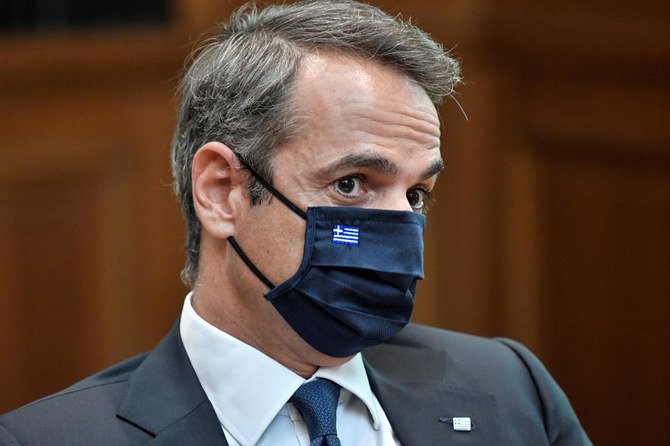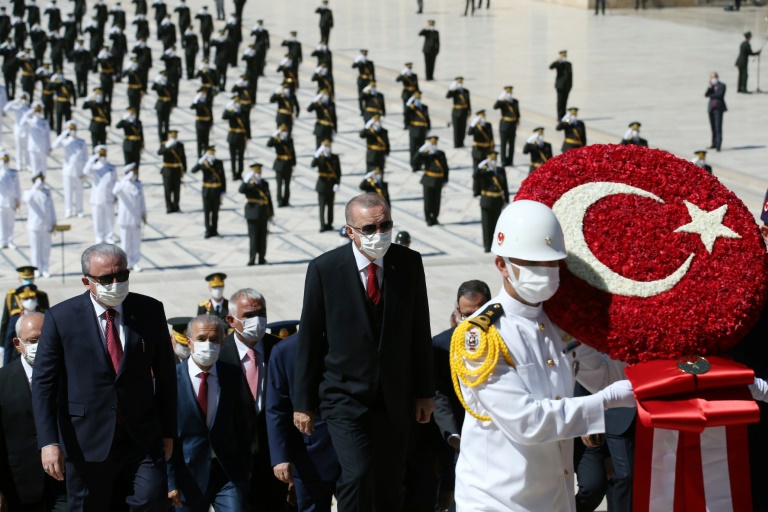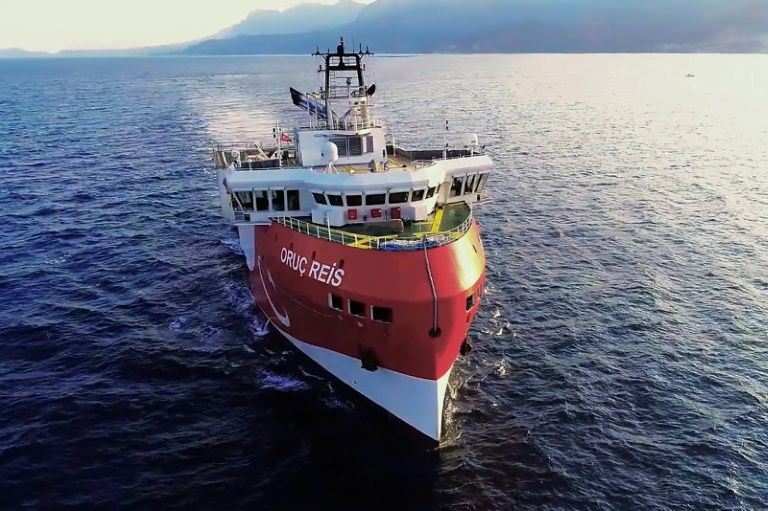
Greek Prime Minister Kyriakos Mitsotakis said Turkey must stop making "threats" against his country if talks on reducing tension in the eastern Mediterranean were to begin. /Reuters
Greek Prime Minister Kyriakos Mitsotakis said Turkey must stop making "threats" against his country if talks on reducing tension in the eastern Mediterranean were to begin. /Reuters
Turkey on Friday accused Greece of shunning dialogue and lying after Greek Prime Minister Kyriakos Mitsotakis said NATO-brokered talks to reduce tension in the eastern Mediterranean could only be held if Ankara stopped making "threats."
"Greece showed once more than it's not in favor of dialogue," Turkish Foreign Minister Mevlut Cavusoglu told reporters in Ankara.
NATO chief Jens Stoltenberg on Thursday said Greek and Turkish leaders "agreed to enter into technical talks at NATO to establish mechanisms for military de-confliction to reduce the risk of incidents and accidents."
But Athens said it had never agreed to the technical talks, which in any case did not constitute dialogue with Turkey.
"Published information claiming Greece and Turkey have agreed to hold so-called 'technical talks' on de-escalating tensions in the eastern Mediterranean do not correspond to reality," Greece's foreign ministry said.
Greek government spokesman Stelios Petsas on Friday said Stoltenberg's initiative "is very far from being termed an agreement to restart dialogue."

Turkish President Recep Tayyip Erdogan (C) said on Sunday the country's "enemies" should "bring it on." /AFP
Turkish President Recep Tayyip Erdogan (C) said on Sunday the country's "enemies" should "bring it on." /AFP
The Greek foreign ministry stressed that "de-escalation will only take place with the immediate withdrawal of all Turkish vessels from the Greek continental shelf."
"Let threats go away so that the contacts can begin," PM Mitsotakis said Friday as he met a visiting senior member of the Chinese Communist party.
In Ankara, Cavusoglu said Greece did in fact agree to the proposal when it was made.
"Greece denied the secretary general's (remarks) but the one lying here is not the NATO secretary general, it's Greece itself," Cavusoglu told reporters in Ankara.
Greek media on Friday said Stoltenberg had handed a "single-sheet document" outlining his thoughts to the military representatives of Greece and Turkey "in a five-minute meeting."
Tensions are running high over Turkey's drilling activities in the eastern Mediterranean which Greece and Cyprus say violate their sovereignty.
Turkey on August 10 deployed the Oruc Reis research vessel and an escorting flotilla of warships to the disputed waters between Cyprus and the Greek islands of Kastellorizo and Crete, and has since prolonged the mission three times.

Deployment of the Oruc Reis research vessel triggered the latest round in the dispute. /AFP
Deployment of the Oruc Reis research vessel triggered the latest round in the dispute. /AFP
Greece responded by staging naval exercises with several EU allies and the United Arab Emirates, not far from smaller ones Turkey conducted between Cyprus and Crete last week.
Mitsotakis on Friday said that Greek Foreign Minister Nikos Dendias would later on Friday brief UN Secretary-General Antonio Guterres in New York on Turkey's "lawless activity".
Turkish President Recep Tayyip Erdogan has repeatedly lashed out at Greece and also France, recently calling their leaders "greedy and incompetent" for challenging Turkish energy exploration in the eastern Mediterranean.
"When the time comes to fight, we will not hesitate to make sacrifices," Erdogan told newly-commissioned officers in Ankara on Sunday.
The European Union has been watching the escalating row with growing concern, repeatedly urging Turkey to stop the exploration activities and threatening to slap sanctions on Ankara if it refused to solve the dispute through dialogue.
EU diplomatic chief Josep Borrell has said that unless Turkey can be engaged in talks, the bloc could develop a list of sanctions at an European Council on September 24 and 25.
Mitsotakis said Turkey was "undermining" international law and "endangering" regional security by seeking to "alter" geography.
Source(s): AFP